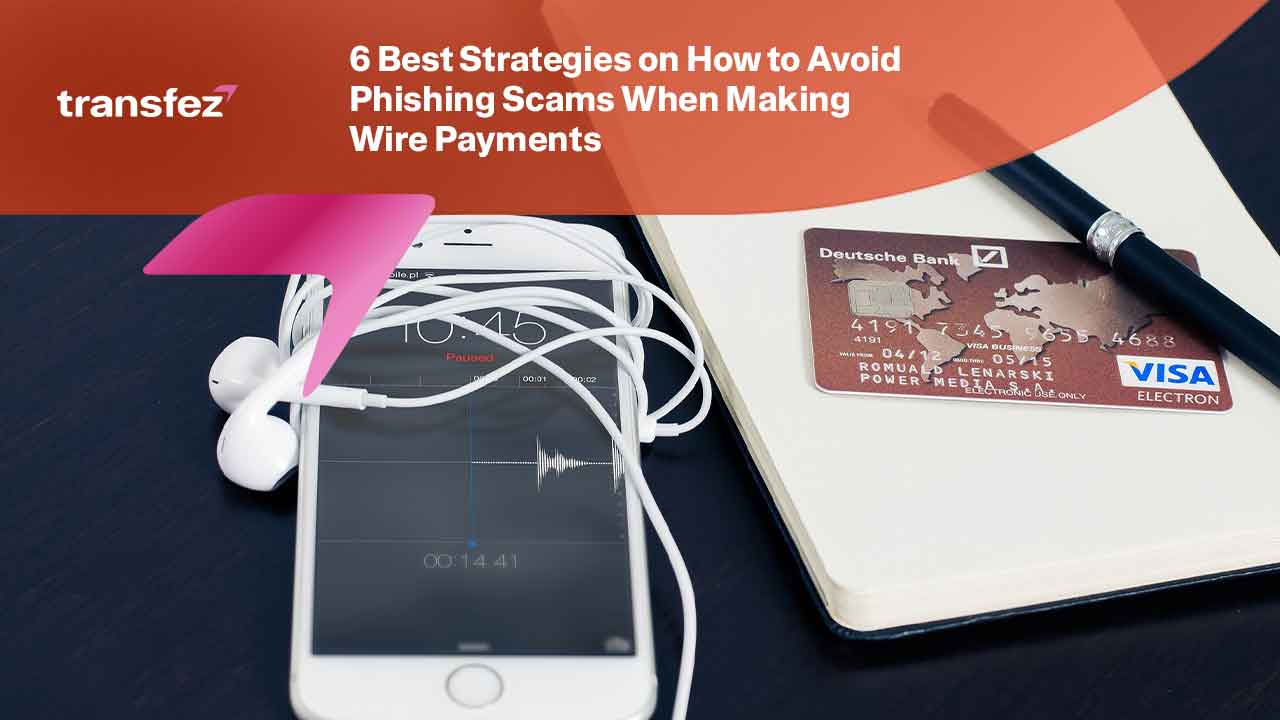
Phishing is a condition where an attacker sends a fake communication to fool a person into disclosing sensitive information to install harmful software. Phishing attacks are becoming more complex, and they frequently transparently mirror the site being targeted. It is allowing the attacker to view everything while the victim navigates the site and crosses any extra security barriers with the victim. One of the necessary considerations in this condition is how to avoid phishing scams when making wire payments.
Minimize Wire Payments on How to Avoid Phishing Scams When Making Wire Payments
Wire transfers are normally utilized only when money must be delivered rapidly, and they are used relatively seldom for vendor payments. Domestic wire transfers account for just 14% of total payments transferred and 24% of total funds transmitted.
As a result, if a supplier requests a wire transfer, the recommended practice is to request payment through a credit card. Since these methods provide more security against fraud. Wire transfers are generally used for significant financial transactions, such as loans and investments. Otherwise, there are not many benefits to employing wire transfers for vendor payments.

Confirm Wire Payments Through Phone
Given the irreversibility of wire transfers and the regularity with which fraudsters target this payment method, it is important to check wire instructions with a vendor over the phone. Call the vendor’s accounts receivable contact and go through the wire instructions (routing number and account number) with them before submitting the payment.
Vendor phone numbers are often available online, and it is preferable to contact the vendor’s website to check rather than the signature line of an email, as emails and their signatures are readily hijacked and altered. To avoid mistakenly conversing with a scammer, send your vendor contact a fresh email asking for a phone number instead of replying to an email.
Understand Phishing Technique
New phishing schemes are constantly being created. You may unintentionally fall victim to one of these new phishing strategies if you do not keep up with them. Keep an eye out for updates on emerging phishing schemes. You will be considerably less likely to get snared by one if you learn about it as soon as possible. IT administrators should conduct continual security awareness training and simulated phishing for all users to maintain security at the forefront of their minds.
See Video How To Easily Send Money International with Transfez

Installing Anti Phishing as One of the Ways How to Avoid Phishing Scams when Making Wire Payments
Anti-phishing toolbars may be added to the majority of popular Internet browsers. These toolbars do short checks on the websites you visit and compare them to lists of known phishing sites. If you visit a dangerous website, the toolbar will notify you. This is an additional layer of defences against phishing frauds, and it is entirely free.
Additionally, high-quality firewalls operate as barriers between you, your computer, and attackers from the outside world. A desktop firewall and a network firewall are both recommended. The first is a type of software, whereas the second is a form of hardware. When used in tandem, they significantly limit the likelihood of hackers and phishers penetrating your computer or network. Therefore, it is also necessary to perform on how to avoid phishing scams when making wire payments.
Send Money Easily to Different Countries
How to Send Money to Hong kong
How to Send Money to China
How to Send Money to Malaysia
How to Send Money to Japan
Beware of Foreign Bank
It is quite rare for vendors to utilize a foreign bank to collect payments for domestic services unless your vendor is abroad. Foreign banks are frequently used by phishers and fraudsters in their fraud operations, making it even more difficult for victims to reclaim their assets. When you notice a foreign bank as part of a vendor payment, confirm the bank details for the service supplied as a best practice.
It is more critical than ever in today’s digital environment to safeguard yourself and your assets from those who are deliberately attempting to take advantage of complacent users. Keep your guard up, especially when dealing with money, and don’t be afraid to double- and triple-check with your seller if you see anything strange. It is a good approach how to avoiding phishing scams when making wire payments.
Avoid Giving Personal Information as Part of How to Avoid Phishing Scams When Making Wire Payments
As a general rule on how to avoid phishing scams when making wire payments, you should never provide sensitive personal or financial information over the Internet. When in doubt, go to the company’s official website, find their phone number, and call them. The majority of phishing emails will send you to pages where you must enter money or personal information. An Internet user should never enter sensitive information using the links supplied in emails. Never send critical information through email to anybody. Make it a practice to check the website’s address.
Download Transfez App
Transfez App can help you transfer money abroad more quickly and efficiently. Transfez Business can also help your business in making transactions abroad. For those of you who want to send money to relatives who are abroad because they are studying, working, or traveling, Transfez will be ready to help. This app is available on Android as well as iOS.
Wire transfers are frequently the most vulnerable to fraud since they are the most difficult to reverse. Unlike ACH or credit card payments, which can be disputed and reversed, wire payments are practically never reversed. This is especially true when it comes to fraud. A wire reversal, as unusual as it is, necessitates cooperation from both the sending and receiving banks. However, wire fraud criminals often withdraw the money shortly after the transmission, leaving the victim with little recourse. Therefore, knowledge on how to avoid phishing scams when making wire payments above is necessary.











Recent Comments